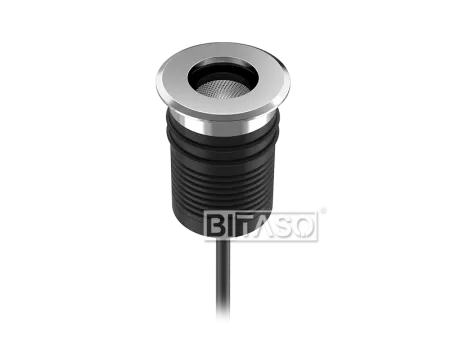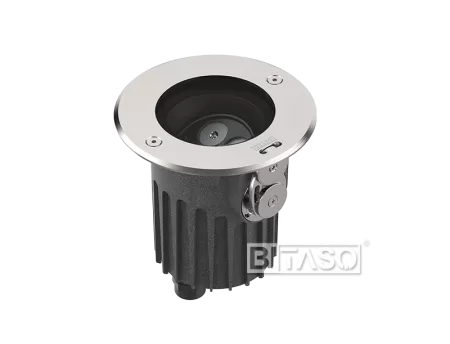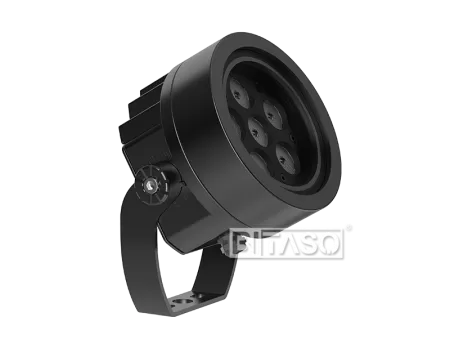Jun. 17, 2024
Before undertaking LED lighting projects aimed at illuminating building facades, it's essential to grasp the concept of a building facade. Essentially, a building facade serves as the "face" of a structure, encompassing its exterior side that faces the street or public space. This includes the front elevation along with all architectural elements such as doors, windows, and walls. Think of it as the initial impression a building makes, reflecting its style, character, and identity. Facades can range from simple to intricate, modern to classical, and they significantly influence the overall aesthetic of a building.
When illuminating facades, leveraging the architectural aesthetics can elevate a building facade from a functional structure to a captivating piece of art. With the advancement of technology, LED luminaires have emerged as the preferred choice for facade illumination due to their versatility, energy efficiency, and creative possibilities. In building facade lighting, these small diodes offer vast potential, serving as a dynamic canvas for architects and lighting designers alike.
Before embarking on a building facade lighting project, it’s essential to appreciate the architectural elements that define your building's uniqueness. Identify key features, textures, and lines that warrant accentuation. Accent lighting plays a crucial role here, utilizing fixtures to highlight specific objects or architectural details on the illuminated structure. BITASO's Surface Facade Wall Light, renowned for its directional capabilities, provides the precision necessary to enhance these nuances.
The choice of color temperature significantly influences the mood and ambiance of your building facade. Warmer temperatures or softer colors (e.g., 2700K) create a cozy and inviting atmosphere, whereas cooler temperatures (e.g., 5000K) impart a more modern and vibrant appearance.
LED facade light excels in directional versatility. Uplights, downlights, and spotlights can strategically illuminate architectural features, casting shadows, adding depth, and highlighting nuanced details. The interplay of light and shadow enriches your building’s exterior with a dynamic visual dimension.
Elevate your facade lighting using smart controls. Integrated with intelligent systems, LED lights enable dynamic displays, color transitions, and programmable scenes. Whether transitioning between warm tones or orchestrating vibrant light displays for special occasions, smart controls offer limitless creative possibilities.
Uniform illumination is crucial for a visually appealing facade. Ensure LED surface facade luminaires are evenly distributed to avoid uneven lighting and dark spots. Consistency not only enhances aesthetics but also contributes to a polished and cohesive architectural presentation.
Before starting your facade lighting project, acquaint yourself with local regulations and guidelines. Adherence ensures a smooth installation process and avoids potential legal issues. Footcandles, a measure of light intensity, are crucial considerations for illuminating building facades. General building facade illumination requires 5 to 10 footcandles. To accentuate particular architectural elements, achieving the desired emphasis necessitates illumination ranging from 10 to 30 footcandles. Illuminating entrance zones typically requires 10 to 20 footcandles to create a welcoming and well-lit environment. Plazas or gathering areas are illuminated based on their level of activity. Low-activity spaces are recommended to have 5 to 10 footcandles, while high-activity areas should have 10 to 20 footcandles. For special effects or artistic lighting aimed at emphasizing drama, lighting at 30+ footcandles may be necessary.
Utilizing up-down LED lights to illuminate a building facade can produce a visually compelling and dynamic effect. Up-down lights, also known as sconces, project light both upward and downward, offering versatility in highlighting architectural elements, enhancing facade depth, and creating dramatic light and shadow effects.
Upward lighting effectively emphasizes specific features such as columns, textures, or decorative elements, while downward lighting illuminates lower portions of the facade, ensuring a balanced and aesthetically pleasing appearance. LED luminaires are ideal for these applications due to their energy efficiency, long lifespan, and ability to create diverse lighting effects.
As experts in lighting design, we understand the transformative capabilities of LED technology when illuminating building facades. Through the application of innovative techniques like grazing light, accentuation, directional beams, and smart controls, we can elevate ordinary structures into architectural marvels. With meticulous planning, design, and attention to detail, our LED lighting solutions not only enhance the visual appeal of facades but also promote energy efficiency and sustainability. Careful consideration of light placement and intensity is crucial to achieving the desired aesthetic impact while minimizing glare and harsh shadows. Our selection of LED fixtures at BITASO includes models equipped with various light distributions tailored to meet specific lighting design needs and local regulations.
Hot Products

DIAMOND D38 SMD
Luminaures with CREE COB or XP-E/G LEDS provide excellent light quality with highly precise light distribution,free of colour shifts and dis-tortion,special PCB layouts ensure the led moudules are optimally matched to the optical system of the luminaires.

EARTHA D135 SMD Beam Angle Adjustable Uplight
Beam Direction Adjustable In-Ground Light D135 SMD Outdoor 6W-12W DC48V

MILESTONE D120 SMD Bracket
Surface Architectural Floodlight Milestone D120 SMD Bracket 15-24W
Contact Us
E-mail: sales@bitaso-lite.com
Tel.: +86 758 2801 266
Phone: +86 186 2047 1396
Add.: No.308, Lianhai Rd., Jianghai District, Jiangmen City, GD.P.R. China